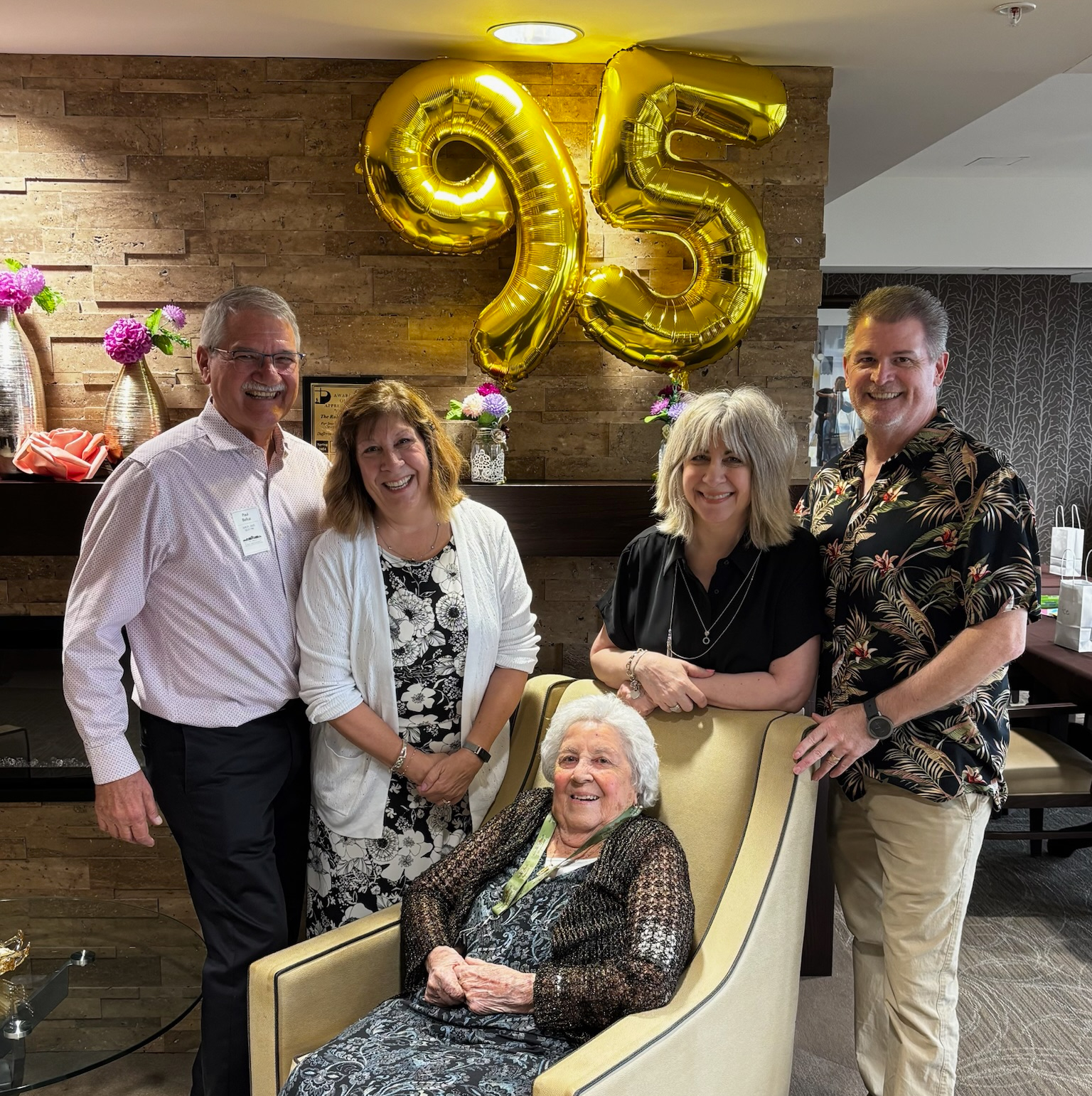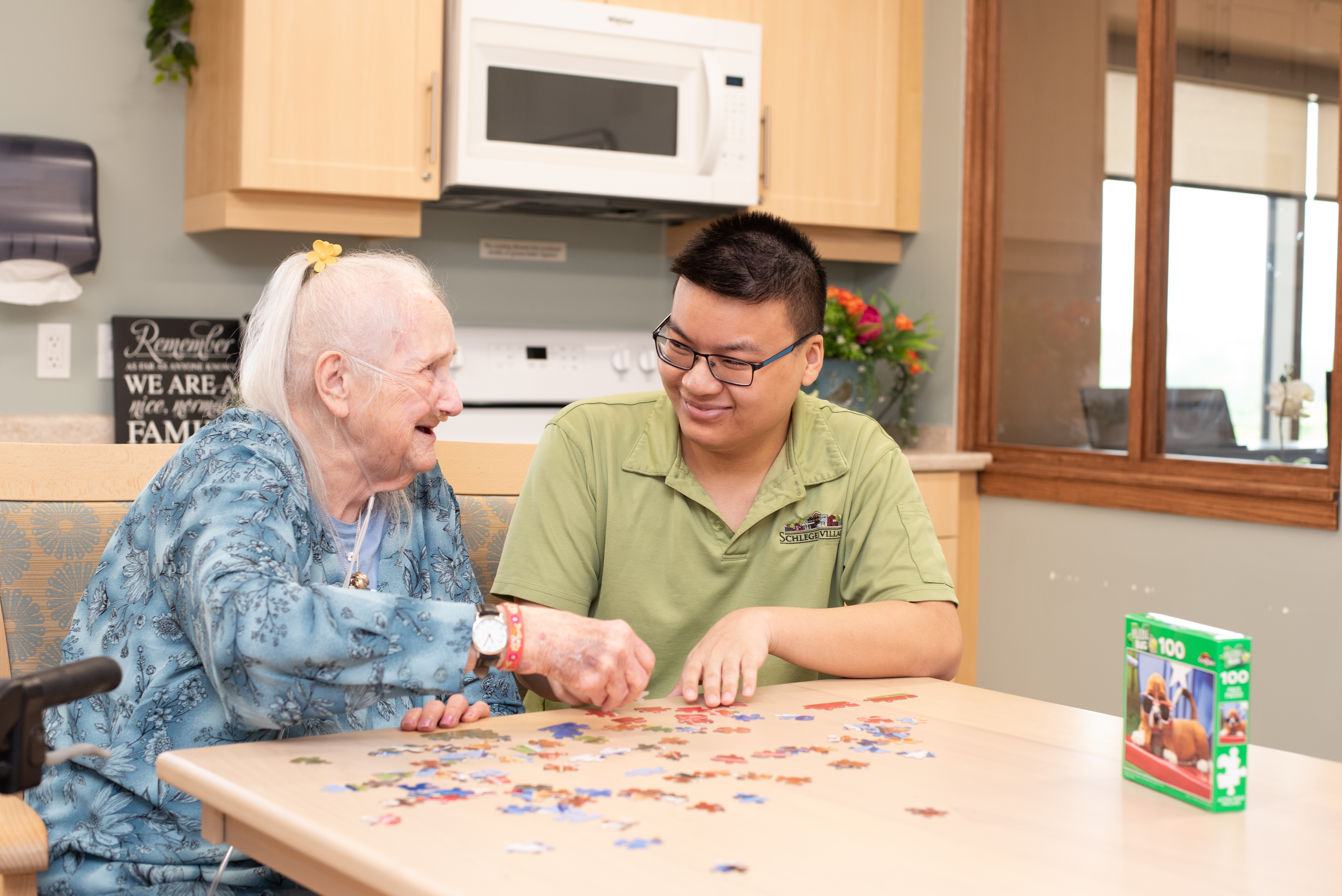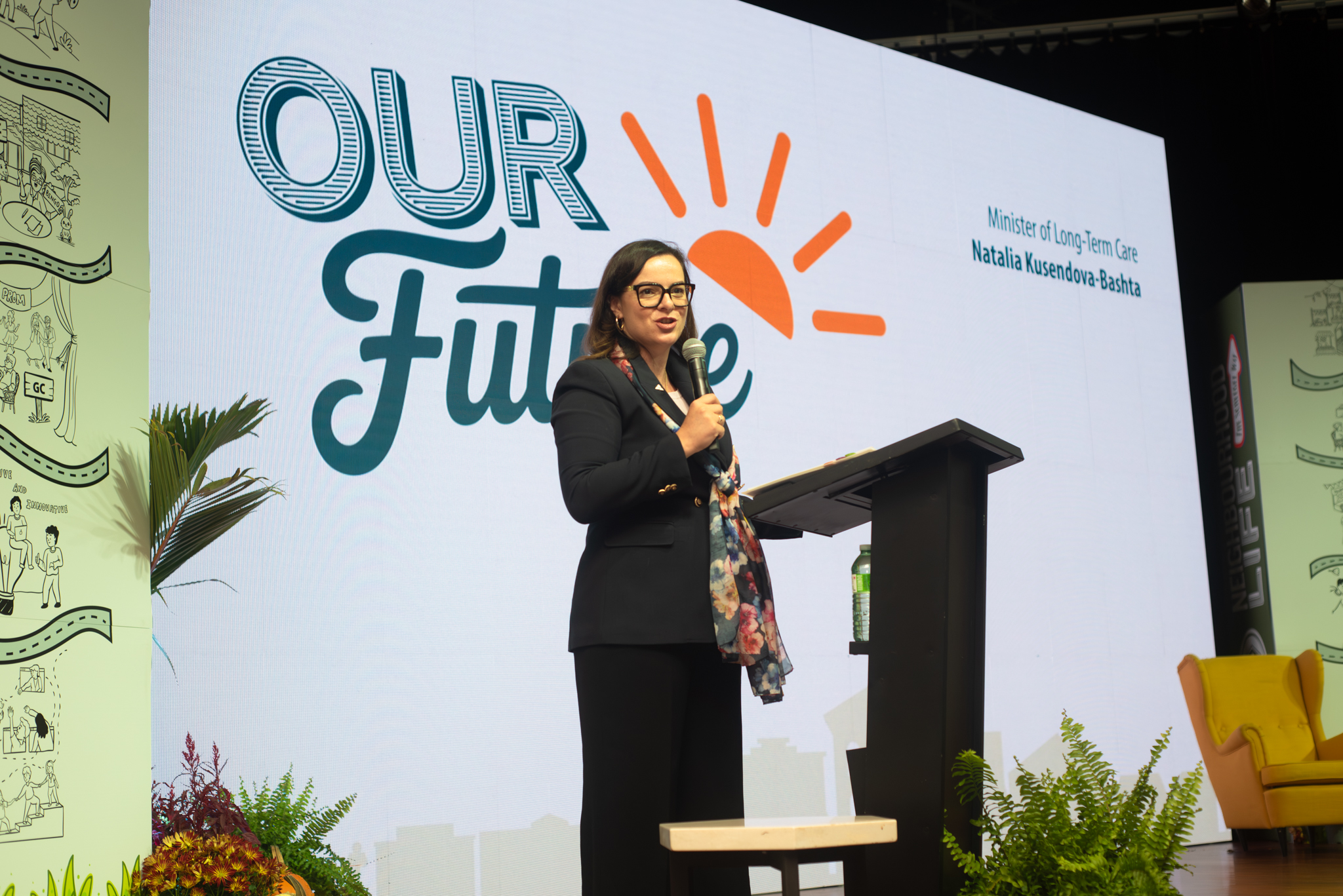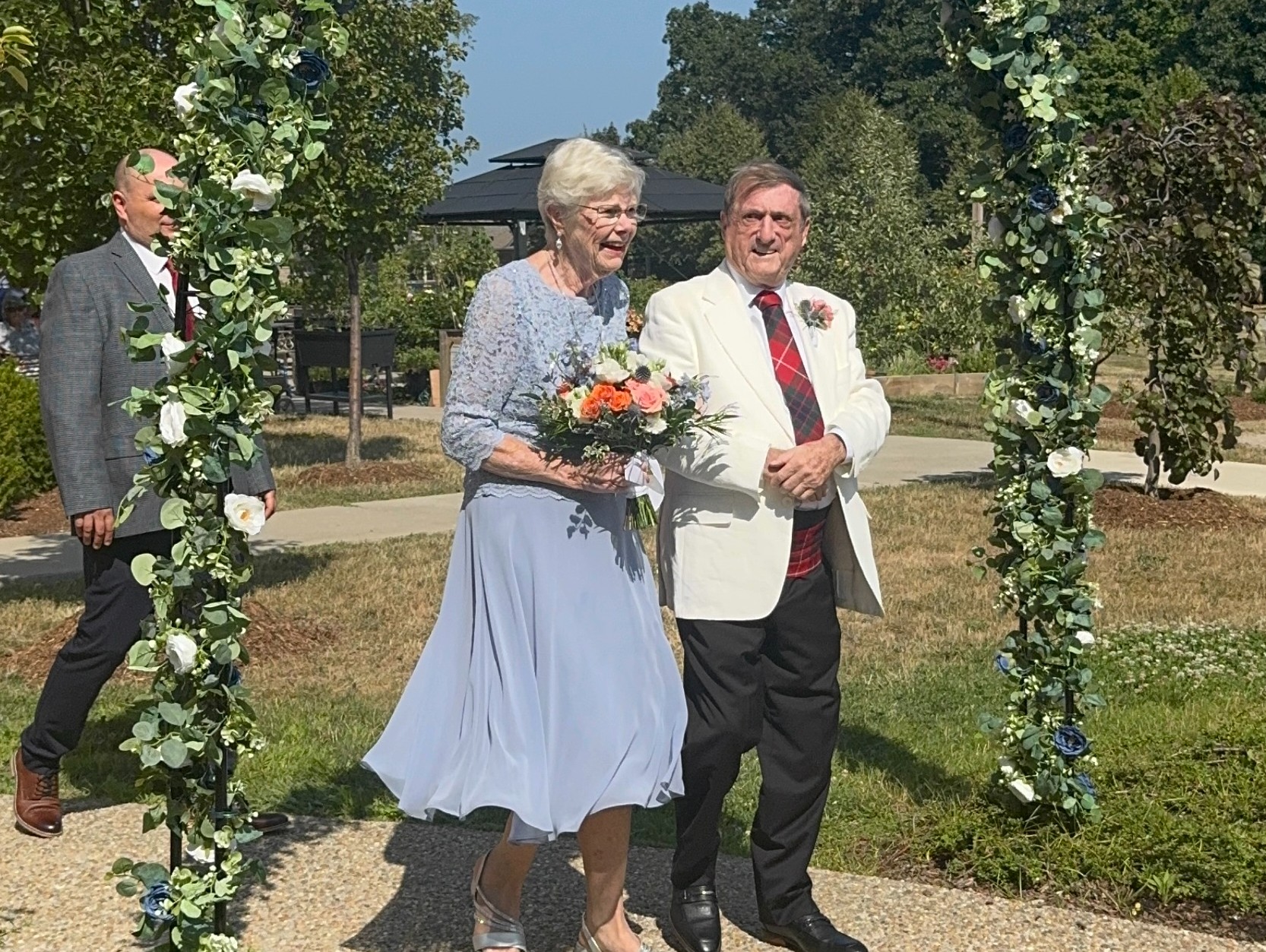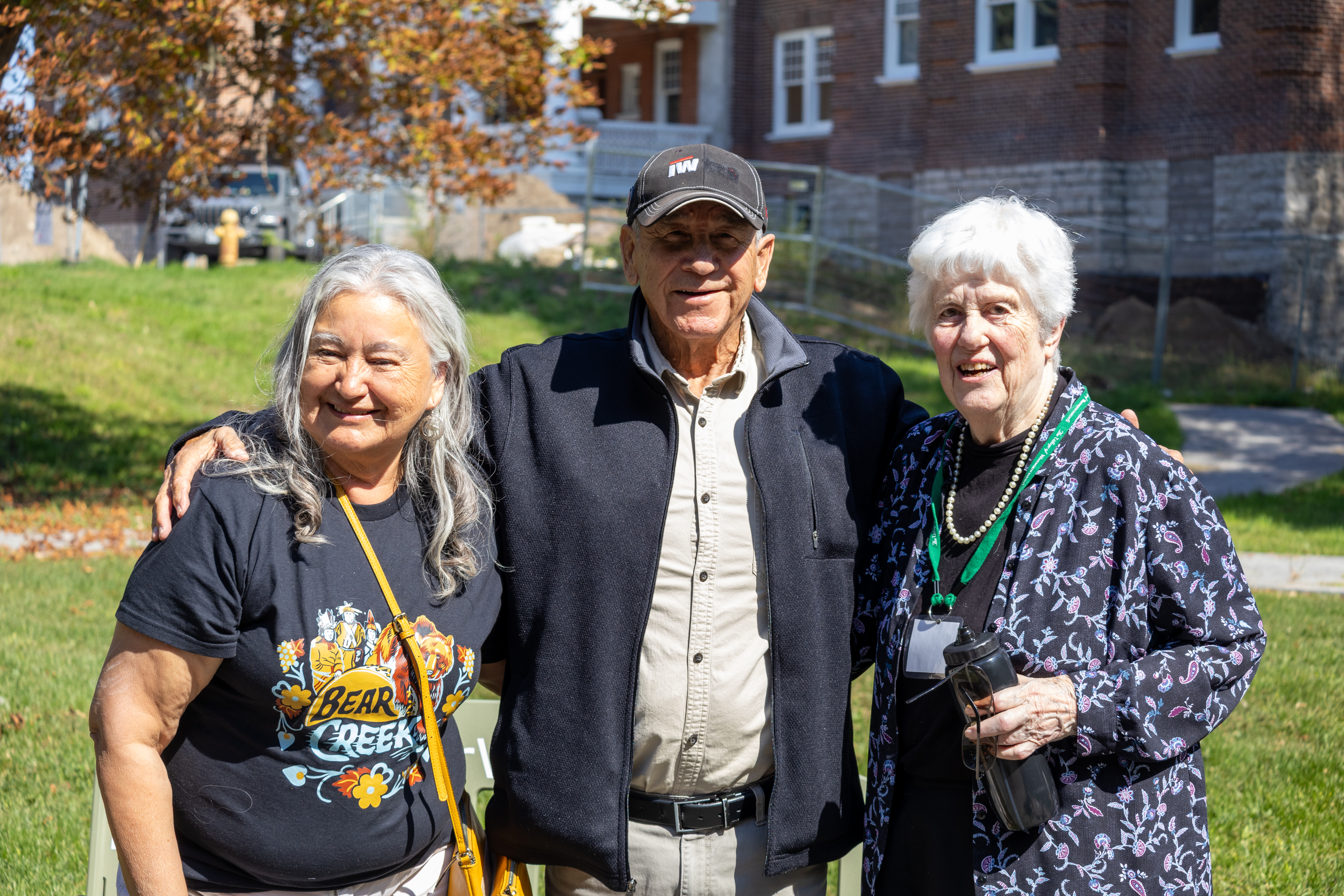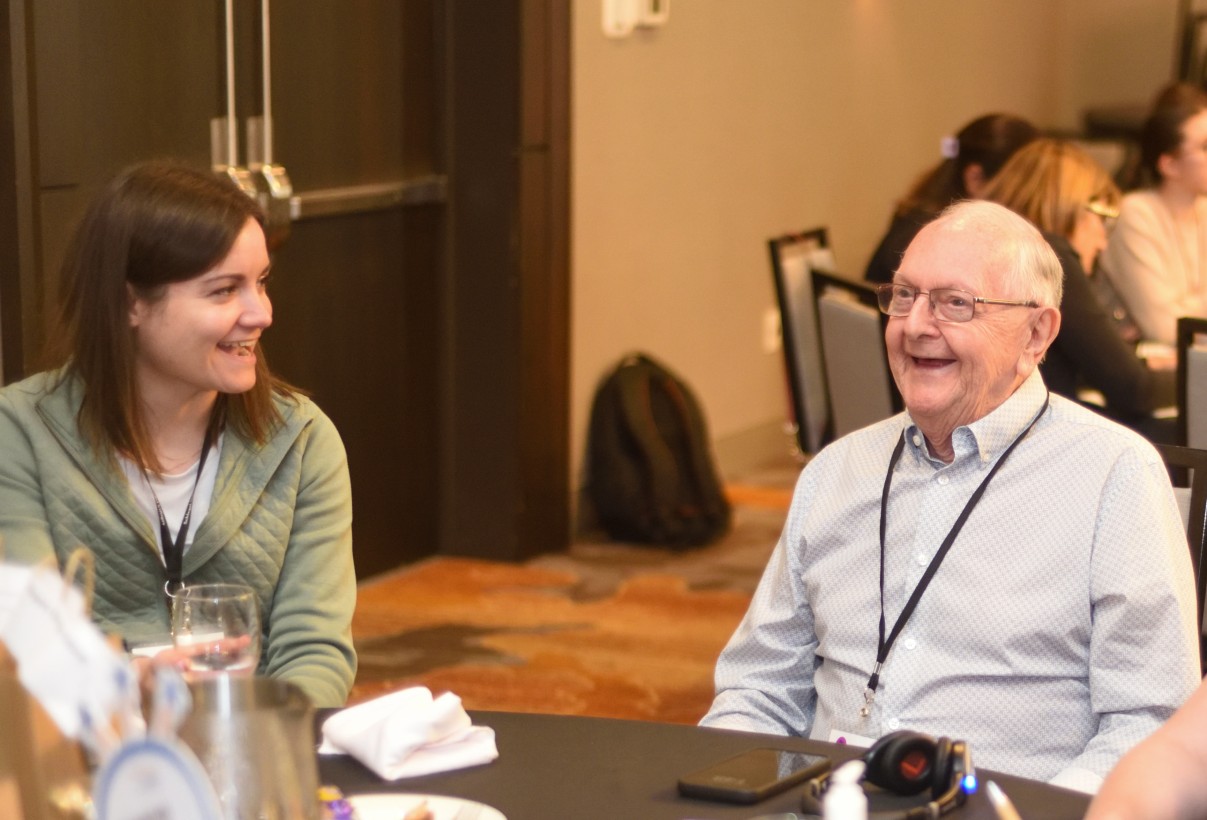When Anjali Thatte began volunteering alongside horticultural therapist Nancy McPhee in the greenhouse at The Village of Erin Meadows in early 2014, she saw it as a pleasant duty she had to complete. She had no experience with long-term care and no idea what to expect. It wasn’t long, however, before The Village transformed her understanding of the word community and set her on a course towards an academic career with the potential to impact the lives of older adults in countless ways.
When she first started in the greenhouse, Anjali quickly saw parallels between the plants she helped nurture and the people who called the village home. “The residents,” she says, “were similar to the plants in the greenhouse; both needed extra care to live, and both were locked away from the eyes of the general public.”
She didn’t intend to stay long, “but once I came I learned so much and met so many people that really inspired me that I couldn’t and still can’t leave.”
She was especially intrigued by the cognitive changes a person living with dementia experiences and the misconceptions and limited understanding the general public has when they hear the word dementia.
“The best way to connect with people is to really try to understand what they’re going through,” Anjali says. “If you can put yourself into someone else’s place and you can really understand what they’re going through, what their life looks like, especially when it’s somebody you’d never really associate your life with, it’s a lot easier to understand their problems or the reasons they do things a certain way.”
To help bridge the gap between the residents at Erin Meadows and her peers at school, Anjali interviewed residents from a variety of backgrounds about their lives before Erin Meadows and after their arrival. The series of memoirs became a book she shared through the school. “Reading this book, peers of different age groups sent me messages about stigmas they have regarding long-term care residents, especially those who have dementia,” Anjali says.
She decided to target some of these stigmas by creating a computer game that would help the general public to gain some understanding of what it might be like to experience some of the cognitive changes associated with dementia. These games were then posted on a project website alongside other information to help community members empathize and understand some of the people who make their home in a long-term care setting. Her interest in the subject continues and in September 2017, she began studying biomedical engineering at the University of Waterloo with her sights set on enhancing the lives of older adults.
“On her last day she told me that her career decision was made because of the volunteer work that she did with us in our horticulture program,” Nancy recalls.
“She brought tears to my eyes when she said that because I truly feel that she is going on to do great things.”
- Previous
- View All News
- Next
